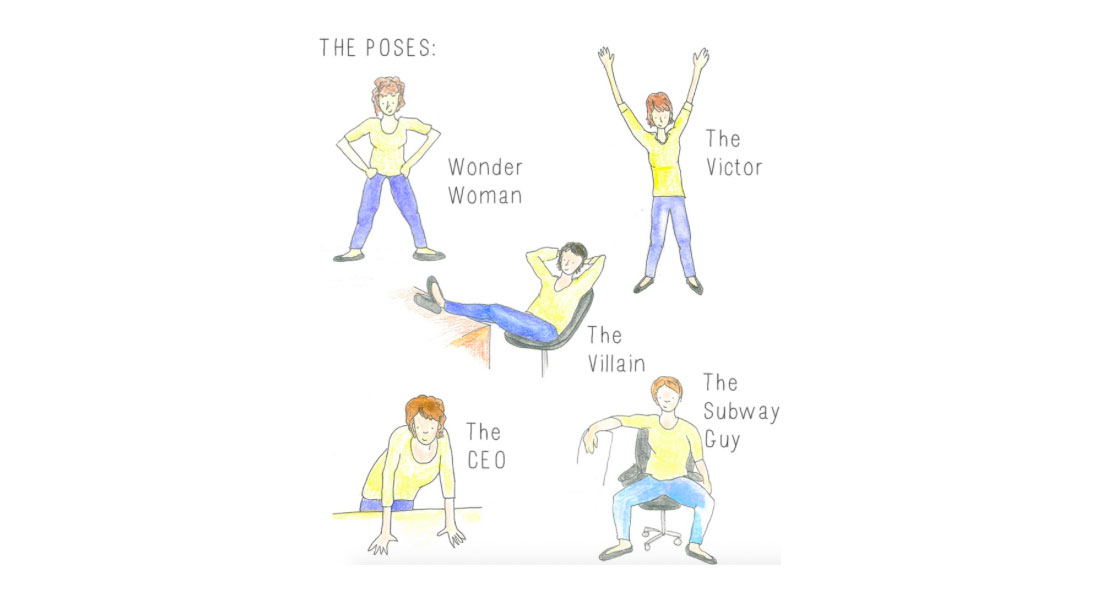When we think about body language, we often relate it to our non-verbal communication with others and look at it in a way of interactions and what might be the outcomes of those interactions. Have you ever thought about body language in relation to yourself and how your own body language can change how you feel, think and act?
There have been studies to suggest that our body language can dramatically change our hormone levels within a short period of time. This can change our confidence, stress and potentially even our response to pain. People who display higher levels of power are often more confident, assertive and optimistic with an increased ability to think abstractly. This can be contributed to by the postures that you adapt.
Amy Cuddy who is a social psychologist, completed a study with colleagues that looked at the effects of body language on our hormones and found that if someone adapts a ‘power pose’ for as little as two minutes it can change the levels of your testosterone and cortisol by significant amounts. To be exact people in their study who adapted a power pose for two minutes had around 20% increase in their testosterone levels and a 25% decrease in their cortisol levels!
What is a power pose? It’s a body posture that is open and expansive, compared to postures that make us smaller and taking up less space, such as hunching, crossing your arms, legs or ankles. So, when we’re thinking of power poses, think of standing with your feet apart, hands on hips and your head held high and chest out. I’ve included some images of power poses below, so you can check them out.
Now let’s take a look at the hormones that can be affected with a change of posture and what type of effects they can have on our bodies and minds.
Testosterone, known as the dominance hormones is most commonly associated as the male hormone, however this is a very important hormone in women as well. Testosterone can increase your confidence, regulate fat metabolism and helps with the maintenance of bone, muscle strength and increases libido.
Cortisol is known as the stress hormone. While it is important to have regular levels of this hormone as it is part of our flight and fight response, can increase glucose metabolism, contribute to the control of blood pressure and reduce inflammation. Cortisol can also become chronically high causing fatigue of the adrenal gland as well as heightened sensitivity to the central nervous system. There are also studies being done looking at the relationship between high levels of cortisol, anxiety and depression. Having lower cortisol levels will also lower your reactiveness to stress.
So, what can we all do to help regulate these hormones and improve ourselves?
Try a power pose for two minutes and fake it until you become it!
Article by Tayla Agosta – Elite Myotherapist






